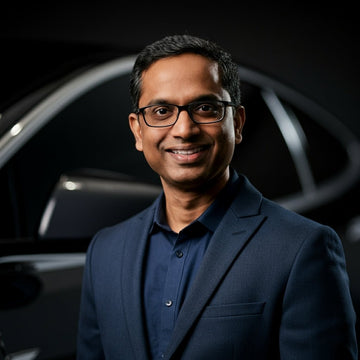Inside Tesla’s AI Genius: Insights from VP Ashok Elluswamy
Tesla, a pioneer in electric vehicles and artificial intelligence, has been at the forefront of technological advancements, particularly in autonomous driving. Recently, VP Ashok Elluswamy shared his insights on Tesla's Full Self-Driving (FSD) technology, advancements in Artificial General Intelligence (AGI), and what the future holds for Tesla in an exclusive interview. This article aims to delve deeper into his thoughts and the implications of Tesla's AI innovations.
The Vision Behind Full Self-Driving
Elluswamy emphasized that the development of Full Self-Driving is rooted in Tesla's mission to accelerate the world's transition to sustainable energy. "Full Self-Driving is not just about getting from point A to point B; it’s about redefining transportation, making it safer and more efficient," he stated during the interview.
To achieve this, Tesla employs a fleet learning approach, where data from every vehicle contributes to the overall improvement of the FSD system. With over 1.5 billion miles driven by Tesla vehicles, this data is invaluable in refining algorithms and enhancing safety measures.
Understanding AGI and Its Implications
Artificial General Intelligence (AGI) represents a significant leap in AI capabilities. Unlike narrow AI, which is designed for specific tasks, AGI aims to understand and learn any intellectual task that a human can. Elluswamy discussed the potential of AGI in transforming industries beyond automotive, stating, "The implications of AGI could extend to healthcare, education, and beyond, fundamentally altering how we approach problem-solving."
Currently, Tesla is focused on developing AI systems that can learn and adapt in real-time, enhancing the user experience across its products. This is evident in their Autopilot features, which continuously evolve based on user interactions and environmental variables.
Challenges in Developing Autonomous Systems
Despite the advancements, Elluswamy acknowledged the challenges faced in developing fully autonomous systems. Regulatory hurdles, public perception, and the need for robust safety protocols are crucial areas that require ongoing attention. He noted, "While the technology is progressing rapidly, ensuring public trust and meeting regulatory standards is paramount."
- Regulatory Compliance: Working closely with regulatory bodies to ensure that FSD technology meets safety standards.
- Public Education: Engaging with the community to demystify autonomous driving technologies and their benefits.
- Safety Protocols: Continuously refining safety measures based on real-world data analytics.
Innovations and Future Prospects
Looking ahead, Elluswamy shared exciting prospects for Tesla's AI initiatives. The integration of FSD with other Tesla products is a key focus area. For instance, the potential to incorporate AI into Tesla's energy solutions could lead to smarter energy management systems.
Moreover, Elluswamy hinted at upcoming features that leverage AI for enhanced user interaction, making Tesla not just a car but an intelligent companion. "Imagine your vehicle learning your preferences and adjusting settings automatically; that’s the future we envision," he explained.
Key Takeaways
- Full Self-Driving: Aims to redefine transportation through fleet learning and real-time data analysis.
- AGI Potential: Could revolutionize various sectors beyond automotive.
- Challenges: Regulatory and public trust issues remain significant hurdles.
- Future Innovations: Integration of AI into Tesla’s broader ecosystem is on the horizon.
Conclusion
Elluswamy’s insights provide a glimpse into the ambitious future Tesla is crafting with AI and FSD technology. As they continue to innovate and address challenges, Tesla stands poised to not only lead in the automotive industry but also set new benchmarks in AI development. The journey has just begun, and the implications for society could be profound.
For more detailed insights, watch the full interview with Ashok Elluswamy here.










